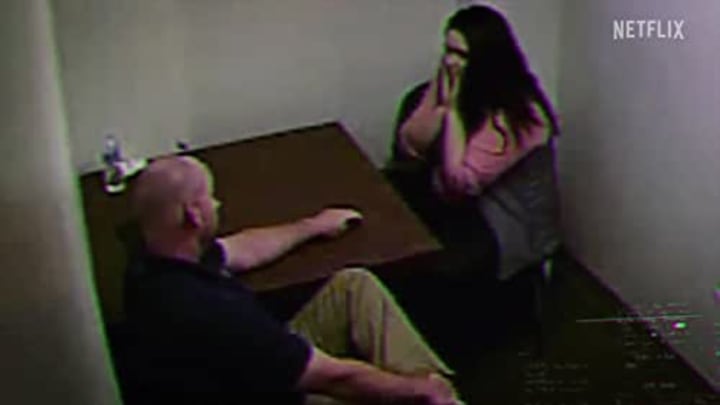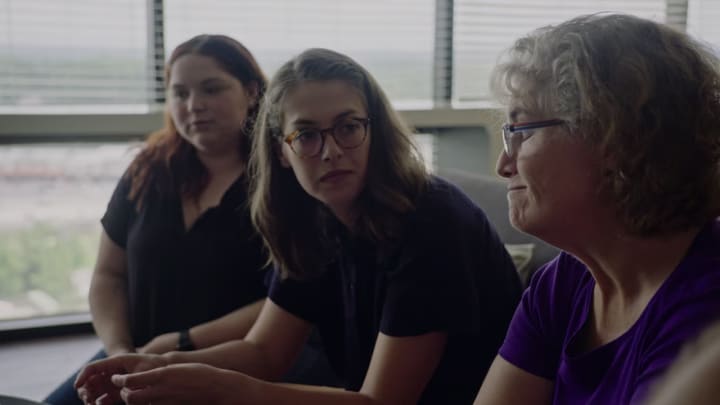Victim/Suspect Movie Review
Victim/Suspect Must watch

"Victim/Suspect" highlights the pervasive issue of sexual assault and exposes the troubling prevalence of false accusations, ultimately emphasizing the need for a nuanced approach to each case and the ramifications of unfounded allegations. However, approaching each case individually has always been crucial, even when the media amplifies traumatic stories and subjects them to public judgment.
Nancy Schwartzman's powerful documentary, "Victim/Suspect," navigates complex territory to deliver a vital message. Focusing on young victims who were subsequently arrested for making false accusations, the film serves as a stark reminder of the need for nuance in handling sexual assault cases, particularly by the authorities. Through eye-opening journalism, the documentary exposes instances where young women like Emma, Nikki, and Diyanie were coerced into recanting their statements during lengthy police depositions. Their pursuit of safety and justice ended with their arrests.

At the heart of "Victim/Suspect" is journalist Rachel de Leon, who works at the Center for Investigative Reporting. In addition to documenting the harrowing experiences of the victims, the film follows de Leon as she delves into each case, conducting her investigation over several years for an article. De Leon pieces together the victims' accounts of assault and contrasts them with how the police handled the cases before closing them with the victims' arrests. She uncovers significant gaps in information and oversights by those responsible for protecting and serving the public. By questioning their work, de Leon embodies the documentary's essence—its unwavering commitment to accountability.
A pattern emerges from these stories: When police officers are skeptical of a potential sexual assault victim, they employ suspect interrogation tactics. They repeatedly question the accuser, keeping them in the room for hours until they feel compelled to escape the situation. In some instances, the police may lie about having video surveillance footage of the alleged incident location to gauge the accuser's reaction. It is all about exerting control, power and forcing submission rather than seeking justice.
Meanwhile, as revealed in the documentary, alleged assailants are rarely interviewed, if at all. This can be a deliberate effort to protect local figures or an expression of bias that allows investigators to reduce their workload and paperwork. In the cases of Nikki and Emma, they ended up serving time in prison. All the women interviewed in the film faced headlines labeling them as false accusers due to their encounters with the police.

While "Victim/Suspect" is a testament to exceptional journalism, it, unfortunately, suffers from a disjointed and distracting narrative style. Schwartzman loosely frames the documentary around de Leon's years-long article, making it confusing when scenes from different periods are presented without visual indicators. This disorientation hampers the viewing experience and detracts from moments that could have been more impactful, such as observing de Leon confronting a police figure who had previously ignored her calls, captured from across a driveway.
However, despite its chronologically fragmented structure, "Victim/Suspect" prevails due to the numerous episodes of de Leon's incisive reporting and unwavering dedication, as well as the insights provided by legal and policing experts regarding the perpetuation of this cycle. By balancing personal accounts from Nikki, Emma, and Diyanie with de Leon's work, the documentary maintains a humanizing touch that showcases the potential of unbiased journalism—the pursuit of truth. De Leon emphasizes that she does not aim to be an advocate for these victims but rather strives to complete each story, delving far deeper than the police ever did or cared to.

De Leon's skepticism towards law enforcement's claims leads her to face reluctant officers who refuse to comment. After three years, she finally secures a sit-down interview with Detective Cotto, the lead investigator in Nikki's case. Initially asserting that his job is a "fact-finding mission" and claiming to be unbiased, his posture crumbles as the interview progresses. De Leon then confronts him with new information about one of Nikki's two suspects being accused of sexual assault just a month before her case. The department led by Detective Cotto had failed to investigate this due to their negligence in interviewing the two men.
This revealing sequence about the shortcomings of police work does not offer a sense of satisfaction but rather elicits further disgust and shame. "Victim/Suspect" showcases those who fulfill their responsibilities and those who do not, highlighting the seismic impact that both sides can have.
Now, Available on Netflix
About the Creator
RICHARD
Hai, this is Richard, a seasoned movie reviewer with an unparalleled passion for cinema. With an astute eye for detail and a deep appreciation for the art of storytelling,
Join Richard on this thrilling adventure,Subscribe now
Enjoyed the story? Support the Creator.
Subscribe for free to receive all their stories in your feed. You could also pledge your support or give them a one-off tip, letting them know you appreciate their work.






Comments
There are no comments for this story
Be the first to respond and start the conversation.